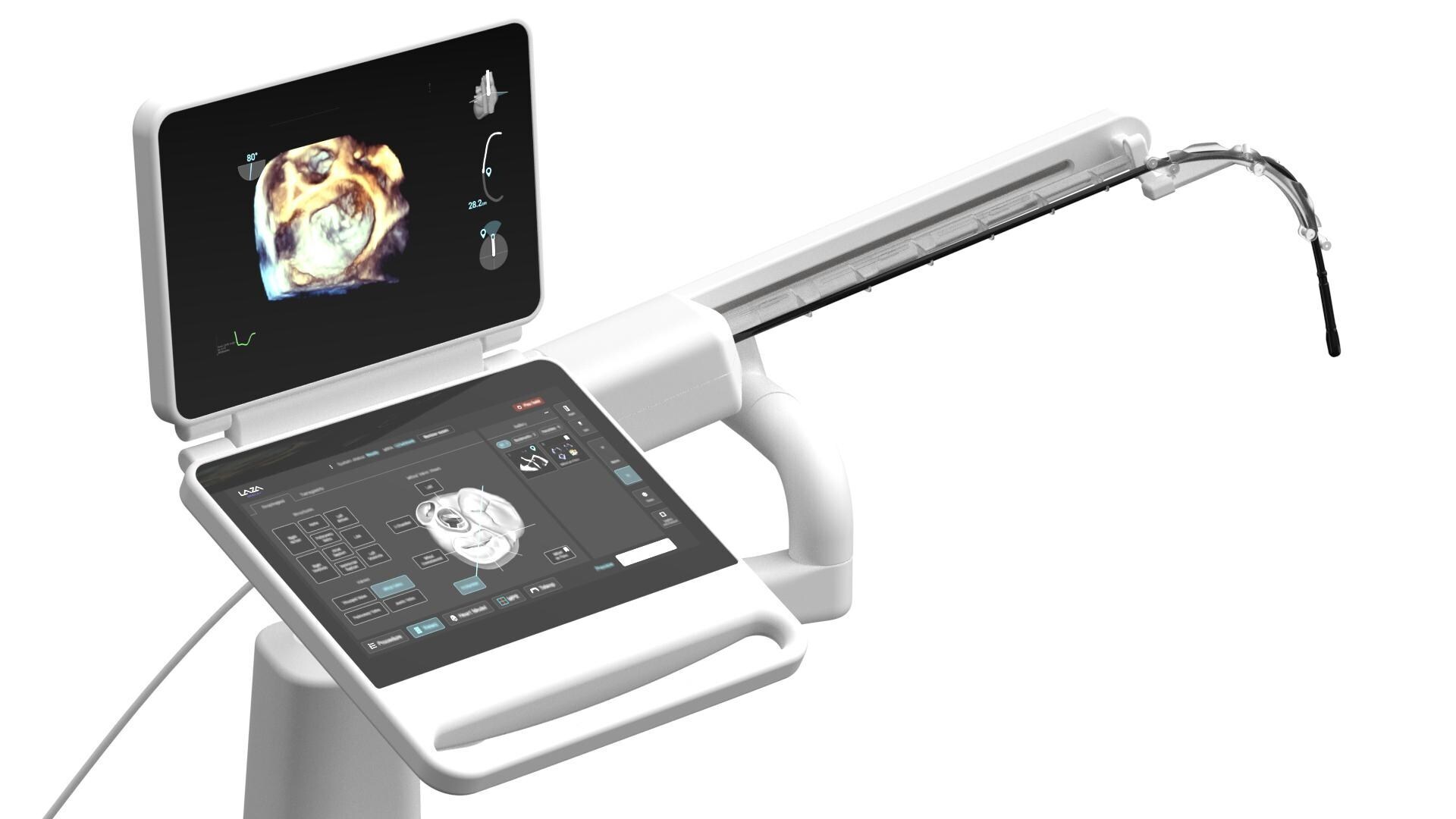Laza Medical's AI Heart Model Achieves First Human Use

Laza Medical has successfully completed its first human cases using a real-time AI heart model for ultrasound-guided cardiac procedures, announced in a press release. This marks the first time the company's AI-based heart model has been evaluated alongside real clinical procedures.
The software constructs a patient-specific, 3D heart model in real time using ultrasound data alone. This innovation aims to address the complexity and high-resource burden associated with image-guided cardiac interventions. The successful completion of these cases is a significant step towards validating Laza's guidance software, which is crucial for the future integration of robotic control in cardiac imaging.
The study was conducted at a top-tier U.S. medical institution, where the software operated concurrently during live cases to enable retrospective analysis and performance assessment. This development is expected to enhance imaging guidance for structural heart procedures, making high-quality imaging more accessible and reducing the burden on clinical teams.
We hope you enjoyed this article.
Consider subscribing to one of our newsletters like Life AI Weekly or Daily AI Brief.
Also, consider following us on social media:
More from: Life Sciences
Subscribe to Life AI Weekly
Weekly coverage of AI applications in healthcare, drug development, biotechnology research, and genomics breakthroughs.
Whitepaper
Stanford HAI’s 2025 AI Index Reveals Record Growth in AI Capabilities, Investment, and Regulation
The 2025 AI Index by Stanford HAI provides a comprehensive overview of the global state of artificial intelligence, highlighting significant advancements in AI capabilities, investment, and regulation. The report details improvements in AI performance, increased adoption in various sectors, and the growing global optimism towards AI, despite ongoing challenges in reasoning and trust. It serves as a critical resource for policymakers, researchers, and industry leaders to understand AI's rapid evolution and its implications.
Read more
